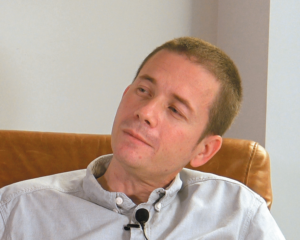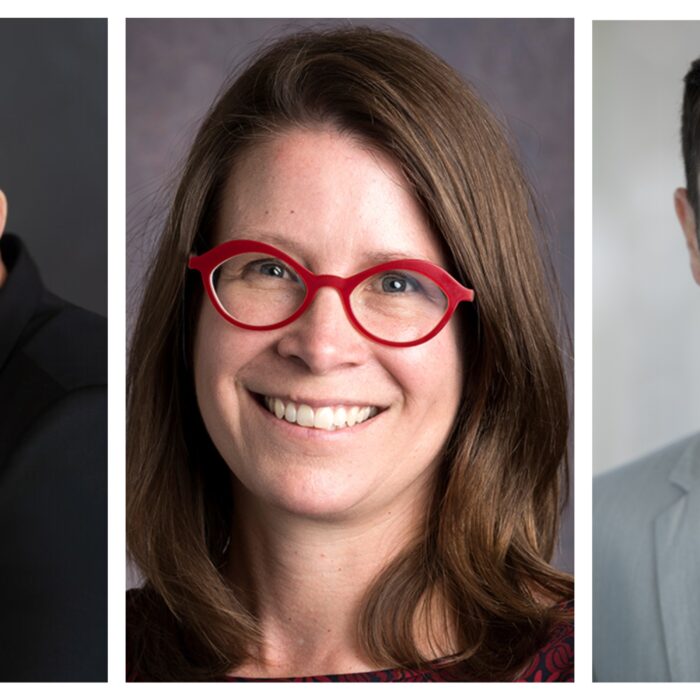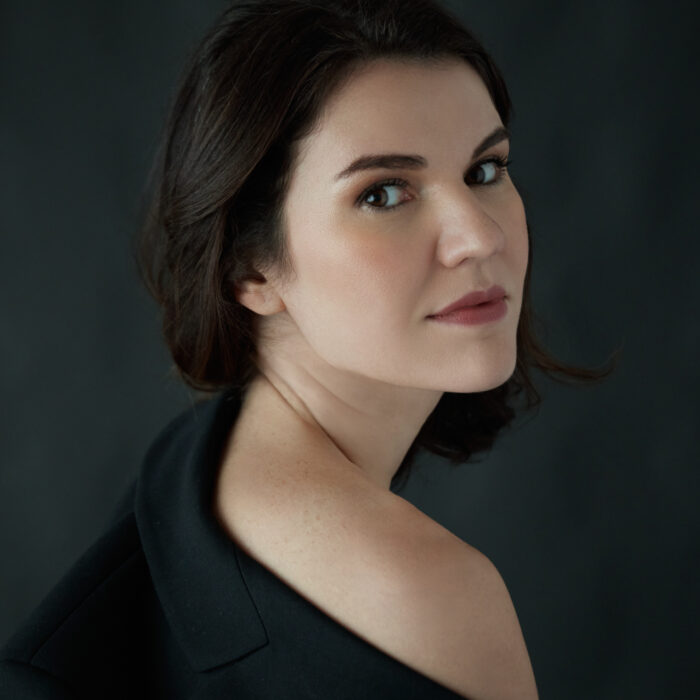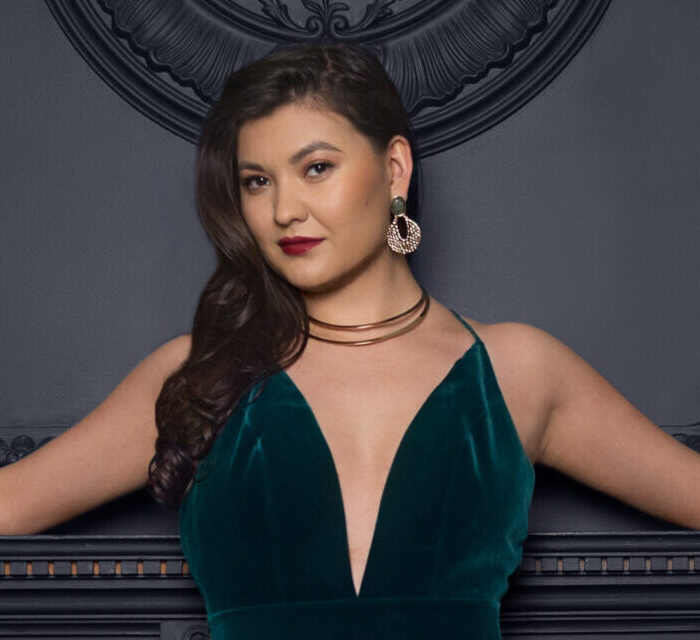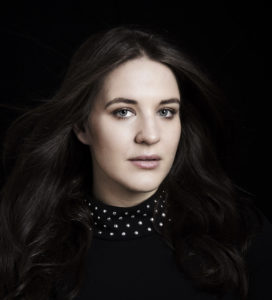
Q & A: Lise Davidsen On Her Big Breaks, Major Wagnerian Debut & COVID-19
By Dejan Vukosavljevic(Credit: Ray Burmiston/Decca Classics)
“I hope that we will be more grateful for the fact that we get to do what we do, that we can sit next to each other in a concert hall and have some more respect for others when they’re not feeling great or are down. We need to come out of this pandemic more supportive of each other. “
Young Norwegian soprano Lise Davidsen was on the big stage of the Royal Opera House Covent Garden on March 13, 2020, as the dark clouds of the fast-approaching COVID-19 pandemic were amassing on the horizon. Davidsen performed the heroic role of Leonore in Beethoven’s “Fidelio,” just a few days before the Royal Opera House would shut its door for a very long period of time. But Davidsen stood her ground.
Dubbed “One Voice in a Million,” and “A Big Wagnerian Promise of the XXI Century,” Davidsen has conquered the major operatic stages, stunning audiences with her gargantuan voice and dramatical mastery.
OperaWire had a chance to talk to Davidsen in anticipation of soprano’s major debut in the role of Sieglinde in Wagner’s “Die Walküre” at the Deutsche Oper Berlin.
OperaWire: Let me begin this conversation by asking how are you?
Lise Davidsen: On the whole, I’m feeling good, and I am very excited about the production of “Die Walküre.” I am also very grateful to be back in the rehearsal room and to be healthy. There is so much to be thankful for.
OW: We have been undergoing very challenging times in the last few months. How did you deal with the situation?
LD: It has obviously been challenging for everyone, and there have been many frustrations and anxieties around. But the enforced break gave me the time to move into my new apartment in Oslo and actually spend time there which otherwise would have never happened. I was also conscious of getting focused on what I had coming up, such as my Metropolitan Opera concert and the upcoming “Die Walküre“ production at the Deutsche Oper Berlin. I also got to spend more time with family and friends. That was a wonderful gift for me, as I have been constantly traveling between the performances.
OW: You were born in a very small town in Southeastern Norway. How did you develop and grow your love for classical music in a small environment?
LD: My passion for classical music began with music lessons when I was in the high school. That was the first time that I felt a specific love for classical music rather than for the pop music I’d been listening to. I sang in the local choir, and also sang in the church on Christmas Eve. Besides, I played the guitar still thinking that my future could be in folk music! But more and more, classical music has become an interest of mine. At the age of 19, I joined a women’s choir, and we sang Vivaldi’s “Gloria.” That was my first experience in the field of classical music.
OW: Tell us more about your educational trajectory. How did you develop your vocal capabilities over time?
LD: I studied in Bergen for four years and then for four more years in Copenhagen. I started as a mezzo-soprano focusing on early music, Bach cantatas, and I then grew into a soprano. That might sound like a big change but in fact, was a gradual development over eight years, so it seemed very natural and straightforward. I’m really glad it happened that way as it allowed me to build my voice step by step and not in a rush.
Bergen is much smaller than the Conservatoire in Copenhagen. That way, studying in Bergen initially was invaluable, as it allowed me the opportunity to work very intensely on my singing one-to-one with a teacher and also in a group setting. In Copenhagen, the studying was structured in a different way where we had more independence spending our time.
Thus, Bergen was very important for me as I did not know much about classical singing, or what was expected from me in the beginning. By working so close with my fellow singing students I learned a lot from them. My teacher in Bergen, Hilde Haraldsen Sveen has also been very important for me. She gave me the space to discover the music I loved, and at the same time she taught me how to practice. She has also explained to me the importance of working step-by-step.
Copenhagen became the school and city where I established myself as a soprano and where I began to learn about being onstage, and how to deliver a performance in front of the public. The opera academy gave me the opportunity to take small roles onstage, as well as dance, drama, and spoken theatre classes. To learn the basics of what’s needed onstage from a professional actress as well as from my singing teacher was a wonderful and extremely important combination for me.
OW: How did you know that you wanted to become an opera singer?
LD: When I was studying at the Opera Academy in Copenhagen we did a scene from “Ariadne auf Naxos.” During rehearsals, I felt for the first time that this is where I wanted to be and that I would dedicate myself to do whatever studies were necessary to become an opera singer. Before that opera was more of a hobby for me, but that was the moment when I knew that this is what I wanted to do.
OW: In 2015, you won two big competitions – Operalia and The Queen Sonja International Competition. How did these big events influence your further vocal development?
LD: They didn’t affect my vocal development – my voice didn’t change from winning the competitions. Winning both competitions in one year suddenly accelerated my career with attention and offers from all over the world coming in. My professional life was turned upside down, everything suddenly got much quicker in terms of my career really picking up.
OW: In 2019 you experienced a meteoric rise. Specifically, the Metropolitan Opera House has hired you for six operas in the next three seasons. How do you deal with such a huge career milestone?
LD: It certainly felt like a milestone, and it was definitely one. I was as prepared as much as I could have been, but it was impossible to know what the actual experience would be like. It was overwhelming to be a part of the production at that amazing theatre, with the great people and all the expectations and excitement that come with a debut at the major opera house.
I was very determined to stay concentrated on my job of performing the role. That was my only priority and everything else had to fit in around it, rather than divert my attention away from my ultimate goal.
OW: Let’s talk about your recent roles. You have performed the role of Elisabeth in “Tannhäuser“ at the Opernhaus Zürich, Bayerische Staatsoper, and The Bayreuth Festival. How did you personally connect with Elisabeth in order to portray her credibly onstage?
LD: I believe that Elisabeth is very human in her emotions. She has been suffering from her big love for Tannhäuser and he has returned to her. They have worked together and therefore their love is even stronger, for each other and also for their art. She is one of the characters that is easiest to understand, and it is heartbreaking how much she loves him and how much that love affects her. She’s willing to give up everything for him which is beautiful.
OW: You debuted at the Royal Opera House in “Fidelio.” How well did the role of Leonore resonate with you, both vocally and dramatically?
LD: It wasn’t my house debut as I’d sung several roles in the Ring Cycle at the Royal Opera House under the baton of Maestro Pappano. But yes, it was my first major role there. It’s undoubtedly one of the most technically taxing roles I’ve ever done. It’s very tricky to combine the dramatic and lyrical parts that Beethoven wrote. The only answer is to put the hours in and I loved that period of intense learning and preparation. Leonore is also a woman whom one can admire – she’s willing to fight for her man, and it was inspiring to play their political beliefs.
OW: Your big Metropolitan Opera House debut came in a Tchaikovsky’s supernatural opera “Queen of Spades.” Who is Lisa to you?
LD: Lisa is one of the bravest characters I’ve ever come across because in her situation she has everything to lose by allowing Hermann into her life. She has a life with the prince that is there for her, but if it goes wrong with Hermann then she will end up homeless on the street. Her life changes forever by being involved with him.
She follows her heart and goes against everything for the man she loves. It is very typical, I think, that she wants what she can’t have. She wants to have the unknown, the excitement, “the guy.” By following that path she ultimately ruins her own life. For me, this opera is also about obsession. Lisa is obsessed with Hermann, and he is obsessed with money and gambling. But I do believe in the love story. I know that many people think that Lisa is a way for Hermann to get to Grafinja, but there is also love between them. They just never get to experience what they could have had.
I would love to be brave as much as Lisa was in the opera. I don’t think I could be like her but would love to have that feeling. I believe that was the most important takeaway from the role of Lisa.
OW: You are slated to make your big role and house debut as Sieglinde in “Die Walküre” at the Deutsche Oper Berlin. How do you feel in terms of safety and artist protection in the light of the pandemic environment?
LD: I feel very protected. We’re being tested for COVID-19 every day. I’m really grateful for the work everyone is putting into making everyone safe and I hope that we can make it to the end of the run. Such precaution measures mean that we don’t have the possibility of enjoying Berlin and socializing, but it doesn’t matter if it means that we get to sing!
OW: The rehearsals for “Die Walküre” started in August 2020. How many layers did you observe in the character of Sieglinde so far?
LD: Sieglinde is a woman that’s been forced to marry a man she doesn’t love. And it is not just that, but her husband is absolutely horrible. Even if she does remember some part of her younger days, Sieglinde does not know much about her origins. And even what she knows, she can not really differentiate if it’s true or maybe just a dream. Living with a man that has been physically and mentally torturing her for years brings her mentally to the state that can be difficult for normal people to understand.
And maybe that’s the reason she does what she does when she is confronted with Siegmund. It is her brother, but it’s also hope, future, love, and someone that finally understands her and wants good things to happen for her. I have no interest in justifying the incest parts of this story, but I believe that when we go into the Ring of Wagner, it is no longer that simple. It is not about the brother and sister the way we know it. For me, they are brother and sister in terms of who belongs together. And they do. He saves her from the miserable life she is living and a life she cannot escape from without him. And that’s what makes her so complex, and also what makes the story of “Die Walküre” so complex.
Sieglinde and Brünnhilde have a rough start because they have the same father but not the same mother. Their powers are not equal. Brunnhilde has supernatural powers, while Sieglinde is only a human. Sieglinde wouldn’t survive the childbirth without Brünnhilde so she owes her a lot. It takes time for her to trust Brünnhilde, but it’s a risk she has to take and one that determines her destiny.
OW: How do you see the new normal post-COVID-19?
LD: I hope that we will be more grateful for the fact that we get to do what we do, that we can sit next to each other in a concert hall and have some more respect for others when they’re not feeling great or are down. We need to come out of this pandemic more supportive of each other.
But most of all I hope we don’t forget what it was like when we couldn’t go out, or couldn’t hug each other or see each other, as that’s a huge thing.
